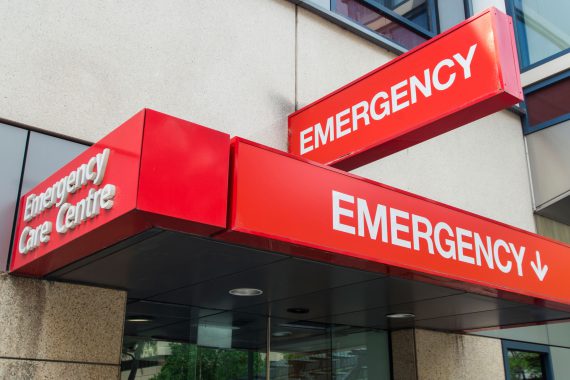GPs told to refrain from referring as hospital declares early-season black alert

A hospital in Cambridgeshire has asked GPs to refer their patients elsewhere after declaring a ‘critical internal incident’ because of a lack of beds.
Addenbrooke’s Hospital, part of Cambridge University Hospitals NHS Foundation Trust, sent out a letter to GPs yesterday morning asking them to refer patients to the community urgent care support team ‘whenever possible’.
The letter says the incident, which is still ongoing, is due to ‘bed capacity issues’.
GP leaders warned it would create additional work for practices and that such an early-season ‘black alert’ was not boding well for winter.
The letter says: ‘The Medical Decisions Unit (MDU) is currently full and there are patients within the Emergency Department awaiting admission that cannot be placed into inpatient beds due to a lack of bed capacity.’
The letter adds that elective patients are on hold and patients are being reviewed for potential cancellations.
The letter tells GPs: ‘Whenever possible please refer patients to the community urgent care support team … The joint emergency team will respond within two hours and will attend to patients who are aged 65 years and over in their home environment.’
Dr Robert Morley, policy lead for the BMA’s GP Committee, told Pulse: ‘While general practice is getting used to these alerts, it is indeed unusual to get such a bed crisis so early in the autumn and it doesn’t augur at all well for the winter to come.
‘Needless to say general practice has to deal with such workload crises all year round and does not have the safety valves that hospitals can call upon.’
He added that the critical incident would ‘absolutely’ increase the amount of work for GPs in the area.
A Cambridge University Hospitals spokesperson said the trust decided to declare the incident ‘as a result of increased demand on beds’.
He said: ‘These situations are not uncommon in hospitals that are seeing a year-on-year increase in demand. When appropriate, we also remind the public not to attend A&E unless it is an emergency and point out other treatment options such as GPs, pharmacists and 111.’
This comes as NHS England statistics reveal that the percentage of A&E attendances admitted to hospital or discharged in four hours or less fell from 87.9% in 2015/16 to 83.7% in 2016/17 in hospital trusts with major A&E departments.
Nationally, major A&Es have missed the target every year since 2010 when 96.1% of patients were admitted or discharged within four hours.
Commenting on the national statistics, Justin Madders MP, Labour’s shadow health minister, said the Government’s ‘underfunding of the NHS’ had ’caused chaos for patients and even in the height of summer key targets are being missed and waiting list numbers are rising’.
BMA chair Dr Chaand Nagpaul said: ‘The crisis in the NHS is across the board – with a lack of hospital beds and services, A&E departments struggling because of an overstretched system, and GPs increasingly unable to get their patients treated within adequate timescales…
‘The Government has so far failed to grasp the seriousness of the situation. The NHS isn’t at breaking point because of front-line financial mismanagement, or poor decision making, but because of the conscious, and constant, underinvestment in our health service.’
Pulse has previously reported that the BMA has declared the winter crisis a ‘year-round norm’ with an analysis that shows that trusts’ performance this winter hit record lows, despite mild weather and no major flu or norovirus outbreaks
Doctors voted at this year’s BMA Annual Representitive Meeting that GP practices should also be able to declare ‘black alerts’ when their surgeries are at maximum capacity, the same way that hospitals do.
Plans to put GPs in A&E to take the pressure off
In March, the Chancellor announced plans to spend £100m on a GP triage service in A&E departments, with every A&E expected to run a triage service by October 2017.
Pulse found that 420 GPs would be needed to run the service, with those working in A&E to have their pay capped at £80 per hour.
Most trusts have said they are planning to recruit around two GPs to cover 15-hour days and are working with GP leaders and CCGs to recruit the GPs.
However, concerns have been raised about the safety of the streaming services after a patient died as a result of being diverted to a pilot GP ‘streaming’ project designed to relieve pressure on A&E.
Pulse July survey
Take our July 2025 survey to potentially win £1.000 worth of tokens











